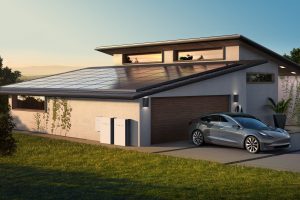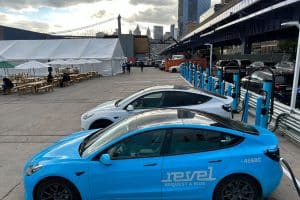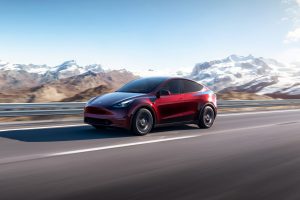Tesla is the “king of the hill” in the electric vehicle sector, former company board member Steve Westly said on CNBC’s Power Lunch yesterday. However, Westly, who joined Tesla in 2007 and left several years later, doesn’t believe the automaker will remain at the helm of the EV industry forever. Driven by growing competition from both low-end and high-end automakers, Westly says Tesla’s time at the top is dependent on its competition, because other markets, like Europe, have pushed Tesla to the wayside in favor of other companies.
While it is safe to say Tesla won’t be at the top of the EV industry “forever,” it is certainly also safe to say that they will lead the sector for a considerable amount of time. With legacy automakers dragging their feet and releasing electric vehicle models for the first time in 2021 and beyond, they sit years behind Tesla, whose only focus is building sustainable, high-performance battery electric vehicles. Meanwhile, companies like Ford and GM continue to drag their feet in the mission of developing a lineup of EVs, and European car companies face issues related to production, transitioning away from ICE, and software. Volkswagen is the automaker that comes to mind with the latter issue.
Westly cited GM going all-electric by 2035, Volkswagen indicating that they’re “all in” on EVs, and Volvo, who announced an all-EV lineup by 2030, as indicators that Tesla won’t be the king forever.
But what have any of these car companies done to prove that Tesla won’t be on the top in 2030? 2035? 2050, even?
It is true that Tesla has fallen a tad in terms of European EV sales figures, but it’s not for no reason. Tesla has not yet started the operation of Giga Berlin, its introductory European production facility that could bring at least 500,000 cars to the market every year. Refusing to export Model Y variants from the United States or China, Europe is stuck with the Model S, Model X, and the Model 3, but only for a few months as Giga Berlin is set to begin production during Summer 2021.
While it is true that Tesla is facing competition from both economical EV brands and luxury manufacturers, this fact alone is a testament to the wide range of EVs that the company is able to offer. Not only is Tesla manufacturing the Model 3 and Model Y, which are more than affordable to many families across the world, but it is also making a point to continue the production and sale of its two, more luxurious models: the Model S and Model X. Not necessarily a huge contributor to the company’s yearly production and delivery targets, both of the vehicles were put off as “sentimental” projects by Elon Musk several years ago. However, a recent refresh to both of these cars seems to indicate that the flagship Tesla vehicles are not going anywhere anytime soon.
In the United States, Tesla reigns supreme with the Model 3 and Model Y. In China, the only car to dethrone the Model 3 is an inexpensive, low-range GM project known as the Wuling HongGuang Mini EV that boasts between 80 and 110 miles of range per charge. In Europe, Tesla was once the “King of the Hill.” But, the lack of a production facility ultimately dethroned the company’s title as the highest-selling EV brand on the continent most thirsty for electric powertrains. When Giga Berlin begins production, this will likely change, and Tesla will reopen its potential to compete with the brands that have ruled the European EV sector for the last few years.
Tesla has continued to grow and expand its footprint through a few challenging years, which indicates that, despite the proven adversity that will likely always exist, the company is robust enough to deflect most of the challenges that come its way. Despite production bottlenecks in 2017 with the Model 3, continued issues in 2018, and the COVID-19 pandemic in 2020, Tesla has sustained a growth pattern that most automotive startups can only dream about. The point that Westly made about Tesla not being “King of the Hill” forever is true, but the foreseeable future belongs to Tesla. Until a company comes along and proves otherwise, Elon Musk’s EV company will remain at the helm, as long as it continues to develop a series of mind-blowing EV products that offer range, performance, and aesthetics that are unmatched by any car company within the last decade.
Original Publication by Joey Klender at Teslarati.





